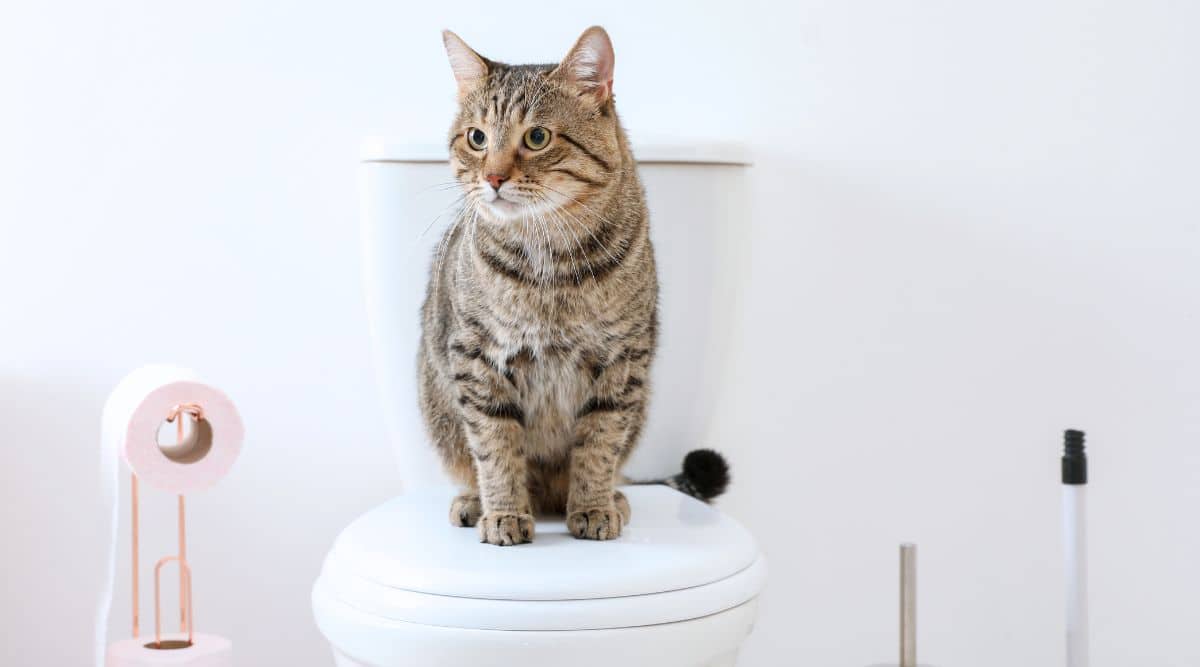Dangers of Flushing Cat Poop Down Your Toilet - Avoid Possible Problems
Dangers of Flushing Cat Poop Down Your Toilet - Avoid Possible Problems
Blog Article
The writer is making a few good pointers on How to Dispose of Cat Poop and Litter Without Plastic Bags in general in this post further down.

Introduction
As feline owners, it's necessary to be mindful of how we take care of our feline close friends' waste. While it may seem hassle-free to purge pet cat poop down the bathroom, this technique can have damaging consequences for both the setting and human health.
Environmental Impact
Flushing pet cat poop introduces hazardous pathogens and parasites right into the water system, presenting a substantial risk to marine environments. These impurities can negatively affect aquatic life and concession water quality.
Health Risks
Along with environmental issues, flushing cat waste can likewise position health and wellness threats to humans. Pet cat feces may contain Toxoplasma gondii, a parasite that can trigger toxoplasmosis-- a possibly serious ailment, particularly for pregnant women and people with weakened immune systems.
Alternatives to Flushing
The good news is, there are much safer and more accountable methods to throw away feline poop. Think about the complying with choices:
1. Scoop and Dispose in Trash
One of the most usual approach of disposing of feline poop is to scoop it into an eco-friendly bag and throw it in the garbage. Make sure to make use of a committed litter scoop and take care of the waste immediately.
2. Use Biodegradable Litter
Choose naturally degradable pet cat litter made from materials such as corn or wheat. These litters are eco-friendly and can be securely gotten rid of in the garbage.
3. Bury in the Yard
If you have a backyard, consider burying pet cat waste in a designated area far from veggie yards and water resources. Be sure to dig deep adequate to prevent contamination of groundwater.
4. Set Up a Pet Waste Disposal System
Invest in a family pet waste disposal system especially designed for feline waste. These systems make use of enzymes to break down the waste, reducing odor and ecological influence.
Conclusion
Accountable family pet possession extends beyond offering food and sanctuary-- it additionally entails proper waste monitoring. By avoiding purging pet cat poop down the bathroom and selecting different disposal methods, we can minimize our environmental impact and shield human health.
Why You Should Never Flush Cat Poop Down the Toilet
A rose by any other name might smell as sweet, but not all poop is created equal. Toilets, and our sewage systems, are designed for human excrement, not animal waste. It might seem like it couldn’t hurt to toss cat feces into the loo, but it’s not a good idea to flush cat poop in the toilet.
First and foremost, assuming your cat uses a litter box, any waste is going to have litter on it. And even the smallest amount of litter can wreak havoc on plumbing.
Over time, small amounts build up, filling up your septic system. Most litter sold today is clumping; it is made from a type of clay that hardens when it gets wet. Ever tried to scrape old clumps from the bottom of a litter box? You know just how cement-hard it can get!
Now imagine just a small clump of that stuck in your pipes. A simple de-clogger like Drano isn’t going to cut it. And that means it’s going to cost you big time to fix it.
Parasitic Contamination
Believe it or not, your healthy kitty may be harboring a nasty parasite. Only cats excrete Toxoplasma in their feces. Yet it rarely causes serious health issues in the cats that are infected. Most people will be fine too if infected. Only pregnant women and people with compromised immune systems are at risk. (If you’ve ever heard how women who are expecting are excused from litter cleaning duty, Toxoplasma is why.)
But other animals may have a problem if infected with the parasite. And human water treatment systems aren’t designed to handle it. As a result, the systems don’t remove the parasite before discharging wastewater into local waterways. Fish, shellfish, and other marine life — otters in particular — are susceptible to toxoplasma. If exposed, most will end up with brain damage and many will die.
Depending on the species of fish, they may end up on someone’s fish hook and, ultimately on someone’s dinner plate. If that someone has a chronic illness, they’re at risk.
Skip the Toilet Training
We know there are folks out there who like to toilet train their cats. And we give them props, it takes a lot of work. But thanks to the toxoplasma, it’s not a good idea.

I stumbled upon that blog posting about Can You Flush Cat Poop Down The Toilet? when looking around the search engines. Do you know about someone else who is fascinated with the topic? Please feel free to promote it. Thanks a bunch for your time. Visit us again soon.
Services Report this page